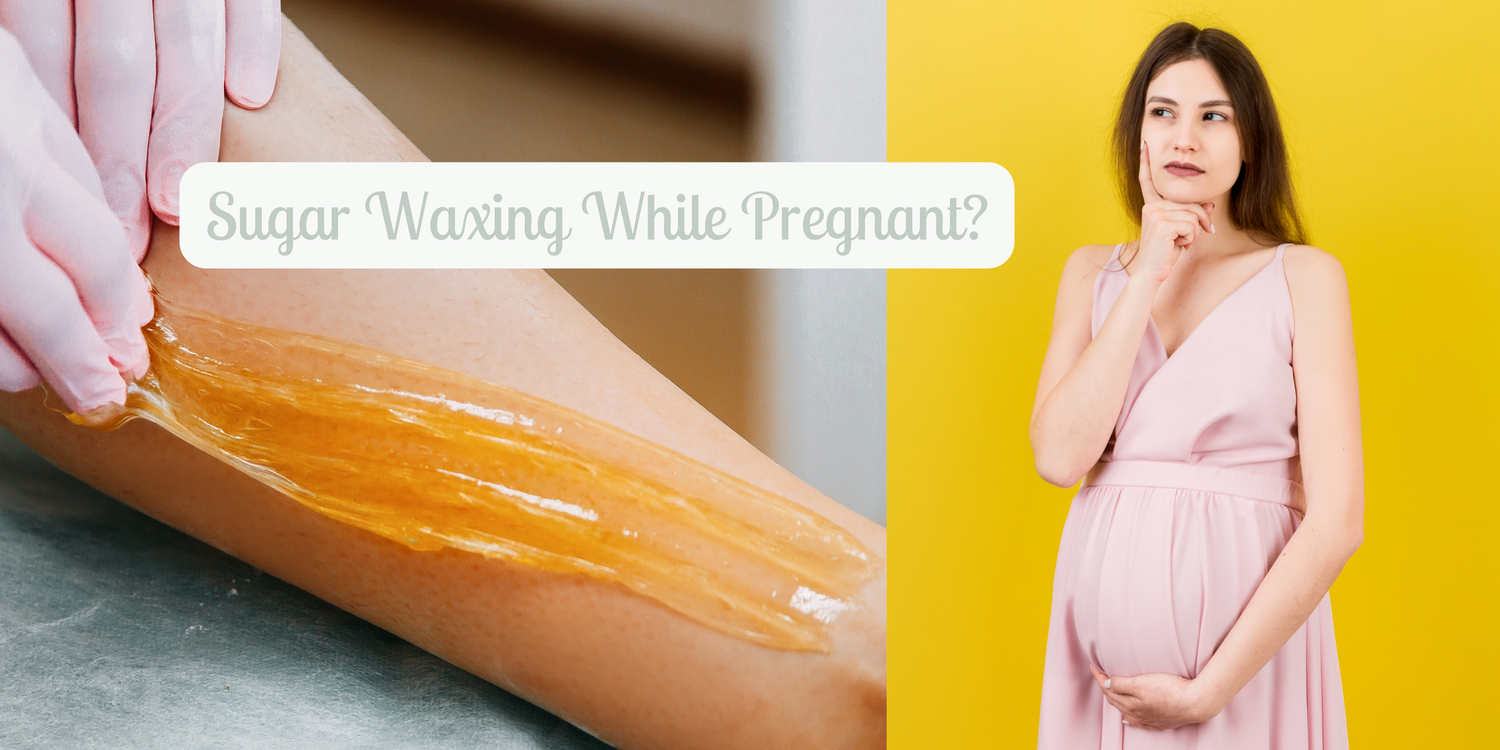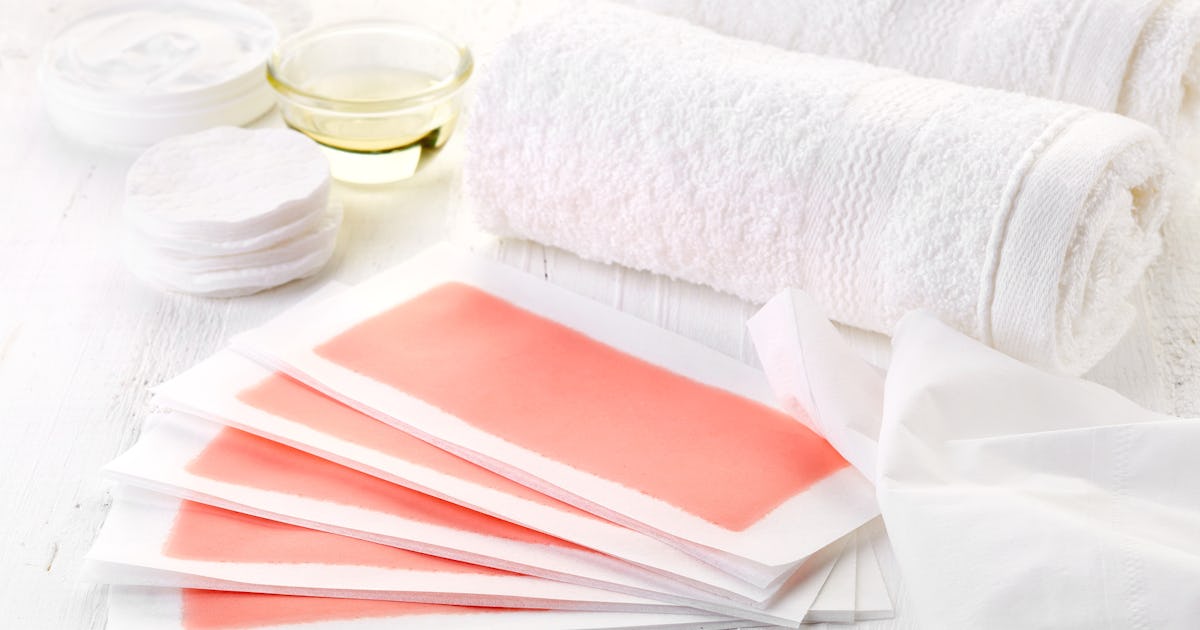Pregnancy is a transformative journey, and many expectant mothers seek ways to maintain their beauty routines. Waxing is a popular hair removal method, but the question "Can I wax while pregnant?" often arises. This article aims to address this concern comprehensively, ensuring you make informed decisions for both your comfort and safety.
As your body undergoes numerous changes during pregnancy, it's crucial to evaluate the safety of various beauty treatments. Waxing, in particular, requires careful consideration due to hormonal fluctuations and increased skin sensitivity. By understanding the risks and benefits, you can determine whether this procedure aligns with your pregnancy needs.
Our goal is to provide evidence-based insights into waxing during pregnancy, backed by trusted medical sources and expert opinions. Whether you're considering waxing for the first time or continuing your routine, this article will guide you through every aspect of the process.
Read also:Mika Abdalla Parents A Deep Dive Into Her Family Background And Influence
Understanding Waxing During Pregnancy
Why Do Pregnant Women Wax?
Waxing remains a favored choice for many pregnant women due to its long-lasting results and effectiveness. However, hormonal changes during pregnancy can alter skin sensitivity and hair growth patterns. Here are some reasons why expectant mothers opt for waxing:
- Effective hair removal for several weeks
- Minimally invasive compared to other treatments
- Helps maintain personal hygiene and comfort
Despite these benefits, it's essential to weigh the pros and cons before proceeding with waxing during pregnancy. Hormonal fluctuations can affect how your skin reacts to the procedure, making it necessary to consult your healthcare provider.
Is Waxing Safe During Pregnancy? The Expert Perspective
Risks Associated with Waxing While Pregnant
While waxing is generally considered safe for most pregnant women, certain risks must be acknowledged:
- Increased skin sensitivity due to hormonal changes
- Potential for irritation or redness
- Risk of ingrown hairs
According to the American Pregnancy Association, it's crucial to monitor your skin's reaction closely during pregnancy. If you experience excessive discomfort or adverse reactions, discontinue waxing and consult your doctor immediately.
Best Practices for Waxing While Pregnant
Preparing for a Safe Waxing Experience
To ensure a comfortable and safe waxing session during pregnancy, follow these guidelines:
- Choose a reputable salon with experienced staff
- Inform your esthetician about your pregnancy
- Schedule the appointment during the second trimester when skin sensitivity is typically lower
Additionally, consider scheduling your waxing sessions in the morning when swelling is minimal. This can help reduce discomfort and improve the overall experience.
Read also:1996 Chinese Zodiac Unveiling The Year Of The Rat
Common Myths About Waxing During Pregnancy
Debunking Misconceptions
There are several myths surrounding waxing during pregnancy. Let's address some common misconceptions:
- Waxing does not harm the baby: The procedure only affects the outer layer of skin and does not penetrate deep enough to impact the fetus.
- Hormonal changes do not necessarily prevent waxing: While sensitivity may increase, many women tolerate waxing well with proper precautions.
By understanding these facts, you can make more informed decisions about incorporating waxing into your pregnancy routine.
Alternative Hair Removal Options
Exploring Other Methods
If you're unsure about waxing, consider these alternative hair removal methods:
- Shaving: A gentle and effective option for sensitive skin
- Depilatory creams: Suitable for certain areas, but consult your doctor first
- Laser hair removal: Generally not recommended during pregnancy due to potential risks
Each method has its advantages and limitations, so discuss your options with your healthcare provider to find the best solution for your needs.
When to Avoid Waxing During Pregnancy
Identifying Contraindications
Although waxing is safe for most pregnant women, certain conditions may warrant avoiding the procedure:
- Severe skin sensitivity or allergies
- Presence of skin infections or rashes
- Medical conditions affecting skin integrity
If you experience any of these issues, it's best to explore alternative hair removal methods until after your pregnancy.
Post-Waxing Care for Pregnant Women
Maintaining Skin Health
Proper post-waxing care is crucial for ensuring your skin remains healthy and irritation-free. Follow these tips:
- Avoid exposing waxed areas to direct sunlight for at least 24 hours
- Use gentle, fragrance-free moisturizers to soothe the skin
- Refrain from using hot water on treated areas
By adhering to these guidelines, you can minimize the risk of irritation and maintain optimal skin health throughout your pregnancy.
Consulting Your Healthcare Provider
The Importance of Professional Advice
Before proceeding with waxing or any beauty treatment during pregnancy, consult your healthcare provider. They can assess your individual health needs and provide personalized recommendations based on your specific circumstances.
Remember, your doctor's guidance is invaluable in ensuring both your comfort and the safety of your baby. Always prioritize professional advice when making decisions about your pregnancy routine.
Real-Life Experiences: Waxing While Pregnant
Testimonials and Success Stories
Many expectant mothers have successfully incorporated waxing into their beauty routines during pregnancy. Here are a few testimonials:
- "I waxed throughout my pregnancy and experienced no issues. My esthetician was very accommodating and made the process comfortable." - Sarah, first-time mother
- "I chose to stop waxing during my third trimester due to increased sensitivity, but it worked well earlier in my pregnancy." - Emily, mother of two
These experiences highlight the importance of personalizing your approach based on your unique needs and preferences.
Conclusion: Making Informed Decisions About Waxing During Pregnancy
In summary, waxing can be a safe and effective hair removal method for many pregnant women when proper precautions are taken. Key points to remember include:
- Consult your healthcare provider before proceeding
- Choose a reputable salon and experienced esthetician
- Follow best practices for pre- and post-waxing care
We encourage you to share your thoughts and experiences in the comments below. Your feedback can help other expectant mothers make informed decisions about their beauty routines during pregnancy. Additionally, feel free to explore other articles on our site for more valuable information on pregnancy and wellness.
Remember, prioritizing your health and comfort is essential during this transformative journey. With the right knowledge and resources, you can maintain your beauty routine while ensuring the safety of your baby.
Table of Contents
- Understanding Waxing During Pregnancy
- Is Waxing Safe During Pregnancy? The Expert Perspective
- Best Practices for Waxing While Pregnant
- Common Myths About Waxing During Pregnancy
- Alternative Hair Removal Options
- When to Avoid Waxing During Pregnancy
- Post-Waxing Care for Pregnant Women
- Consulting Your Healthcare Provider
- Real-Life Experiences: Waxing While Pregnant
- Conclusion: Making Informed Decisions About Waxing During Pregnancy




